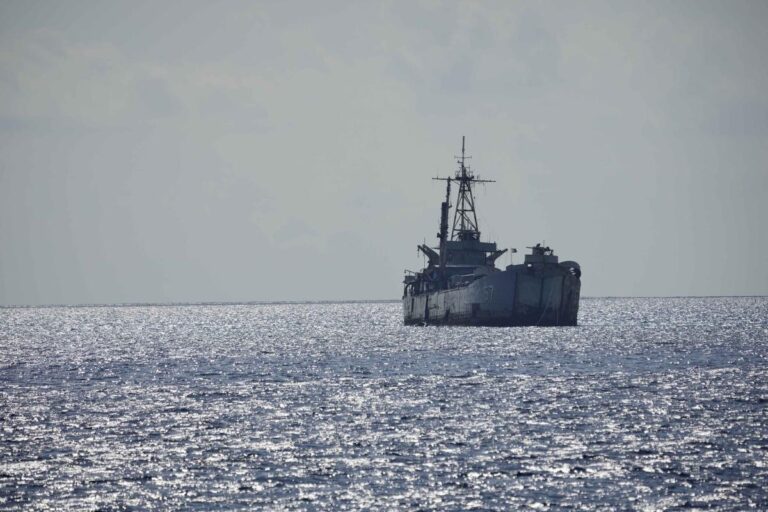MANILA, Philippines (AP) — The United States renewed its warning Tuesday of its obligation to defend close treaty allies, officials said, a day after one of the most serious standoffs between the Philippines and China in disputed waters in the South China Sea left a Philippine navy sailor injured and a supply ship damaged.
China and the Philippines accused each other of instigating Monday’s hostilities at Second Thomas Shoal, which is occupied by a small Philippine naval force aboard a stranded warship and closely watched by Chinese coast guard, navy and suspected militia vessels in a years-long territorial dispute that has escalated what has long been seen as an Asian flashpoint and threatens to draw the United States and China into a larger conflict.
US Deputy Secretary of State Kurt Campbell spoke by phone with his Philippine counterpart Maria Teresa Lazaro to discuss China’s actions. State Department spokesman Matthew Miller said the two agreed that China’s “dangerous actions threaten regional peace and stability.”
According to Miller, Campbell reaffirmed that the 1951 Mutual Defense Treaty, which obligates Washington and Manila to assist each other’s defense in a major conflict, “extends to armed attacks against Philippine military forces, public vessels, and aircraft, including those of the Coast Guard, anywhere in the South China Sea.”
A Philippine government task force monitoring the territorial dispute condemned the “dangerous actions, including ramming and towing,” that disrupted the BRP Sierra Madre’s regular deliveries of food, water and other supplies to Filipinos stationed at a shallow territorial outpost.
“Despite the Chinese navy’s illegal, aggressive and reckless actions, our personnel showed restraint and professionalism, refrained from escalating tensions and carried out their mission,” the Philippine task force said, without elaborating. “Their actions endangered the lives of our personnel and caused damage to our vessel in clear violation of international law.”
“The Philippines bears responsibility for this incident,” the Chinese coast guard said, adding that the Philippine vessel “ignored China’s repeated and solemn warnings, and made an unprofessional and dangerous approach to a Chinese vessel on normal navigation, causing a collision.”
The supply ship was accompanied by two speedboats which were attempting to deliver construction materials and other supplies to warships stationed in the shallow waters, China’s foreign ministry said, describing the country’s coast guard’s moves as “professional, restrained, reasonable and lawful”.
Philippine Defense Secretary Gilberto Teodoro Jr. said Monday night that his country’s military would resist “China’s dangerous and reckless actions” which he said are “contrary to their demonstration of good faith and decency.”
“We will do everything in our power to fulfill our sworn mission of safeguarding our territorial integrity, sovereignty and sovereign rights,” Teodoro said. “It should now be clear to the international community that China’s actions are a real obstacle to peace and stability in the South China Sea.”
Several incidents have occurred in recent months near the shoal, less than 200 nautical miles (370 kilometers) from the Philippines’ nearest coast, where the Sierra Madre is anchored. Though rusted since being intentionally run aground in 1999, the Sierra Madre remains an active warship, and the Philippines could view any attack on it as an act of war.
China has been increasingly asserting its sovereignty over almost the entire South China Sea, resulting in increased direct conflict with other countries in the region, particularly the Philippines and Vietnam.
China’s new law, which came into force on Saturday, allows its coast guard to seize foreign vessels that “illegally enter China’s territorial waters” and detain foreign crew members for up to 60 days. The law makes fresh reference to a 2021 law that allows China’s coast guard to open fire on foreign vessels if necessary.
At least three coastal claimants to the area – the Philippines, Vietnam and Taiwan – have said they do not recognise the law. Malaysia and Brunei are also embroiled in a long-running territorial dispute that is seen as a sensitive area in the long-running U.S.-China rivalry in the region.
___
Associated Press writers Aaron Favila and Joal Carpitan in Manila contributed to this report.

